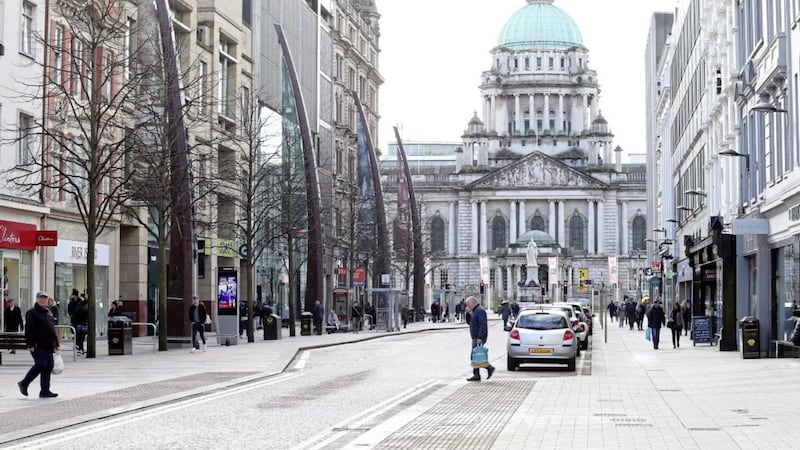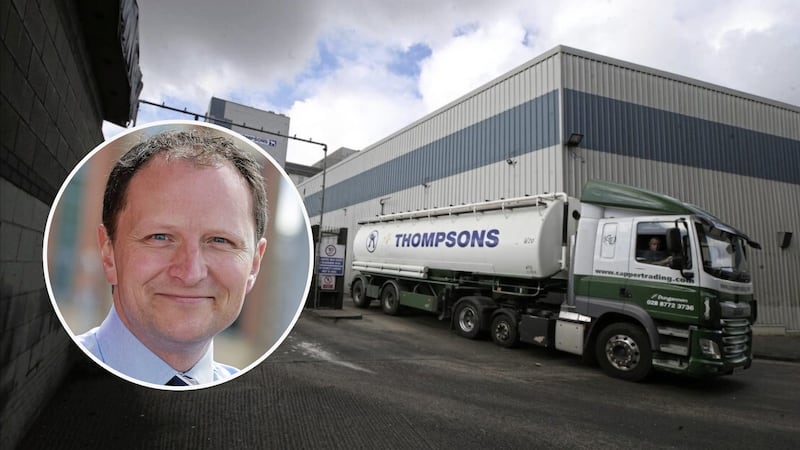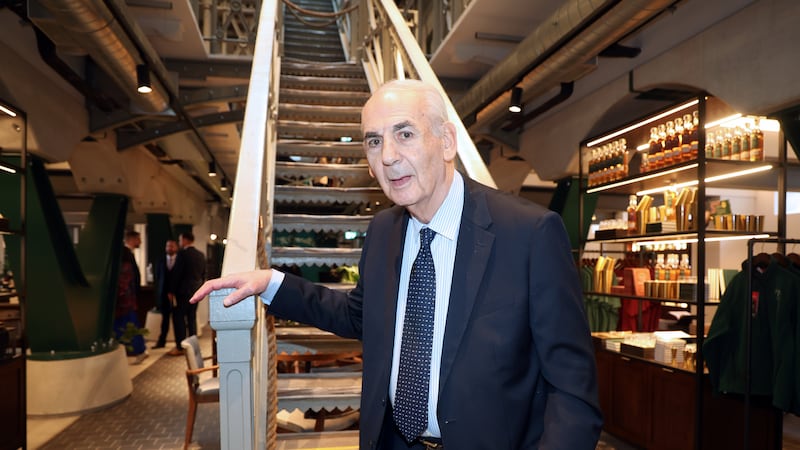HOSPITALITY businesses in the north are facing catastrophe in the coming days and weeks in an Armageddon-style scenario where many operators will go to the wall amid the unfolding and unprecedented coronavirus crisis.
And with hundreds of premises staying shut on St Patrick's Day - one of their busiest and most lucrative trading periods of the year - industry body Hospitality Ulster has urged the Stormont Executive to urgently bring forward a package of essential support to help the sector protect people’s jobs.
Its chief executive Colin Neill emerged from what he described as a “constructive” meeting with the First and Deputy First Ministers to say there was “unilateral agreement” that protecting staff is of paramount importance.
He said: “This is about the health, wellbeing and overall livelihoods of people who work in our sector who have families to feed and bills to pay, and our priority is to ensure that they have jobs to go to.”
“But if there is any decision by the government to close businesses in the hospitality sector, that it must be done with a financial package that allows our staff to put food on their tables and that they have jobs to return to.”
Scores of restaurants, pubs and cafes have already voluntarily closed over concerns for their employees and a drop-off in business due to a surge in people working from home (yesterday IT firm AllState NI directed all 2,200 staff to work remotely).
Meanwhile Economy Minister Diane Dodds said the modest economic growth for the north this year (EY predicted it will remain sluggish at 0.8 per cent) will be wiped out altogether this year, or possibly even plunge into negative territory.
And finance Minister Conor Murphy said on Monday evening that subject to Executive agreement, he will shortly announce an initial range of support measures for businesses.
He said some of the announcements contained in last week’s UK Budget had provided scope to start putting together a package of support.
But it could be another two weeks before an announcement is made on business rates (he is due to outline the Stormont budget on March 30).
Addressing the Assembly yesterday, Mr Murphy indicated that there will likely be movement on the timing of rates bills.
“Quite rightly the budget will want to focus on response to this crisis,” he said.
But he insisted that matching the rates holiday announced by the Chancellor for England would cost around £200 million in Northern Ireland and said the extra cash for the north through the Barnett formula would only cover half that, meaning funding would have to be sourced from elsewhere in Stormont.
Meanwhile industry is estimating that 3,000 tourism businesses are at risk following an alarming drop off in activity, with major attractions like Titanic Belfast confirming visitor numbers have slumped by 50 per cent.
Kevin Kingston, bosses of the north's biggest business bank Danske, described the current crisis as "significant", and admitted that while the number of customers in difficulties is currently in single figures, he expects this to increase by the end of the week.
He acknowledged there are increasing cashflow difficulties, particularly in hospitality, but added: “Viable businesses before Covid-19 should be viable after."
Danske, like a number of other business banks, is committing to support business customers with a range of support mechanisms like increased overdraft facilities, deferral of repayments, and extending existing working capital provisions to support short term cash flow needs.
Meanwhile the north's food and drink manufacturing sector says it remains well placed to continue delivering to customers despite the challenges set to arise over the next few months.
NI Food and Drink Association director Michael Bell said: “We have robust, responsive supply chains. The industry can increase capacity to cope with increased demand, and we have stepped up supply to supermarkets to meet surges in demand due to changing consumer purchasing habits.
“Many companies will look at recruiting additional staff to ensure labour shortages due to illness will not impact on food production. We are also working closely with government to ensure this essential industry can continue to operate and meet customer needs during these challenging times.”








